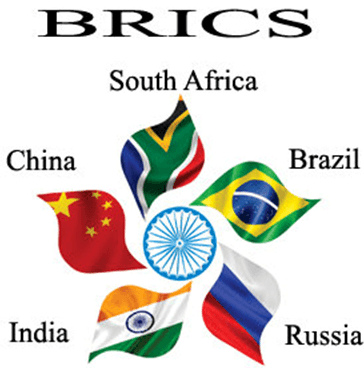
AKIPRESS.COM - The dominance of US dollar in global trade is facing a significant challenge as emerging global economies, such as India and China, step forward to trade in their own currencies. Besides, countries either seen as aligned or neutral by the West in terms of the ongoing Russia – Ukraine conflict, are increasingly banding together to focus on mutual global finance, WION reported.
The BRICS (Brazil, Russia, India, China and South Africa) countries are reportedly exploring the creation of a common currency for trade amongst themselves. A new financial arrangement, seen with a potential to translate into a common BRICS currency, could be announced as soon as in August 2023 at the forthcoming BRICS summit in South Africa.
While speaking at the St. Petersburg International Economic Forum event in New Delhi, India, last week, Alexander Babakov, the deputy chairman of Russian parliament the State Duma, said that the initial transition plan is to usedomestic currencies in transactions. Following this, the introduction and circulation of a digital or an alternative form of currency could be explored.
The potential introduction of a common BRICS currency is significant given the bilateral differences between India and China due to ongoing military standoff along the Line of Actual Control between the two Asian giants.
Babakov pointed out that the BRICS leaders summit will reveal a preparedness to implement this particular initiative, with work on the project ongoing, Russian news agency Sputnik reported.
"The US dollar plays a far too dominant role in global finance," Jim O’Neill, the former Goldman Sachs Group Inc. chief economist who coined the acronym BRIC, wrote in a paper published in the Global Policy journal last month.
"Whenever the Federal Reserve Board has embarked on periods of monetary tightening, or the opposite, loosening, the consequences on the value of the dollar and the knock-on effects have been dramatic."
Brazil, Russia, India and China established BRIC in 2009 and the bloc became BRICS a year later when South Africa was admitted. If it expands to include other "emerging nations with persistent surpluses," a globally fairer, multi-currency global system could emerge, O’Neill said.
India has been making consistent efforts to replace the US dollar with rupee as global reserve currency. New Delhi is offering countries facing dollar shortage to settle their trade payments in Indian rupee. The country aims to “disaster proof” countries in its immediate neighbourhood and the one with which it shares significant trade volumes.
China set up its own commodity exchange in Shanghai – the Shanghai International Energy Exchange (INE) in 2018 for oil deliveries from countries such as Iran, Venezuela and Russia. The contracts traded in INE are solely in the Chinese renminbi.
A potential deal between China and Saudi Arabia to settle trade transactions in renminbi may further push back the US dollar from the oil territory.
The uproar against the US dollar's dominance in global trade is because the US dollar, almost hegemonically, is a dominant force in global finance. This can be best illustrated by the US dollar's status in global oil trading. Most of the trade is denominated in the US dollars even when neither the barrels of crude (in terms of country of origin) nor the parties trading it have anything to do with it.
According to Basel, Switzerland-based Bank for International Settlements, approximately half of global trade is invoiced in US dollars. This disproportionately large reliance on the US dollar is in spite of the United States accounting for just over a 10th of global trade.
The dollar’s dominance in global trade means the burden of dollar-denominated debt for other nations rises and falls with the exchange rate. This destabilises the economies of the countries with US monetary policy often playing a defining role than its own domestic decisions.
